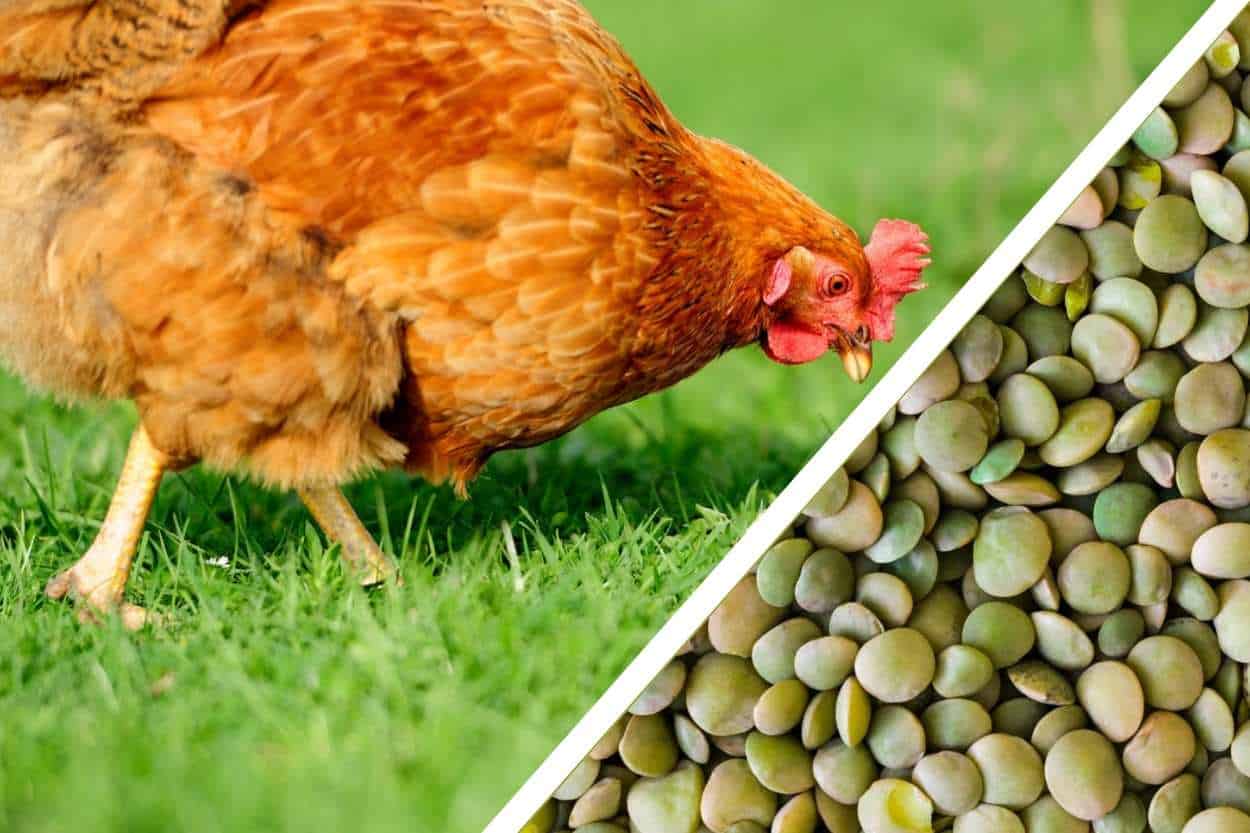No more second guessing if chickens can eat lentils because properly cooked lentils are an excellent addition to your poultry feeds! Supplementing lentils to your chicken feed mix will do more good than harm as long as you know how to cook it correctly and learn some things to consider like the number of lentils to feed them.
Without further ado, let’s jump to the definition, nutritional benefits and the types of lentils!
What are Lentils?

Lentils belong to the family of seed-bearing plants– legumes. The scientific name for lentils is Lens Culinaris which translates in English as culinary lenses. Lentils are characterized by a tiny flat, round-shape (lenslike) appearance, hence the name. It is also the reason why people sometimes confuse lentils and beans.
Lentils have nutty and earthy flavors, but more than the taste, these seeds are highly nutritious, which makes them suitable for various culinary recipes.
Nutritional Content of Lentils
Check the table for some of the nutritional content of one cup of lentils and their purpose to the body.
| Benefits | Amount | Purpose |
| Dietary fibre | 15.6 g | Excellent digestive health |
| Magnesium | 234.2mg | Improving blood flow |
| Folate | 919.68 mcg | Heart health and increased new cell count |
| Protein | 18 g | Provides energy to the body |
| Selenium | 15.94 mcg | Enhancing immunity |
| Zinc | 9.18 mg | Enhancing immunity |
| Iron | 14.5 mg | Good oxygen flow |
| Potassium | 1,833.6 mg | Regulates heartbeat |
Various Types of Lentils
1. Brown Lentils
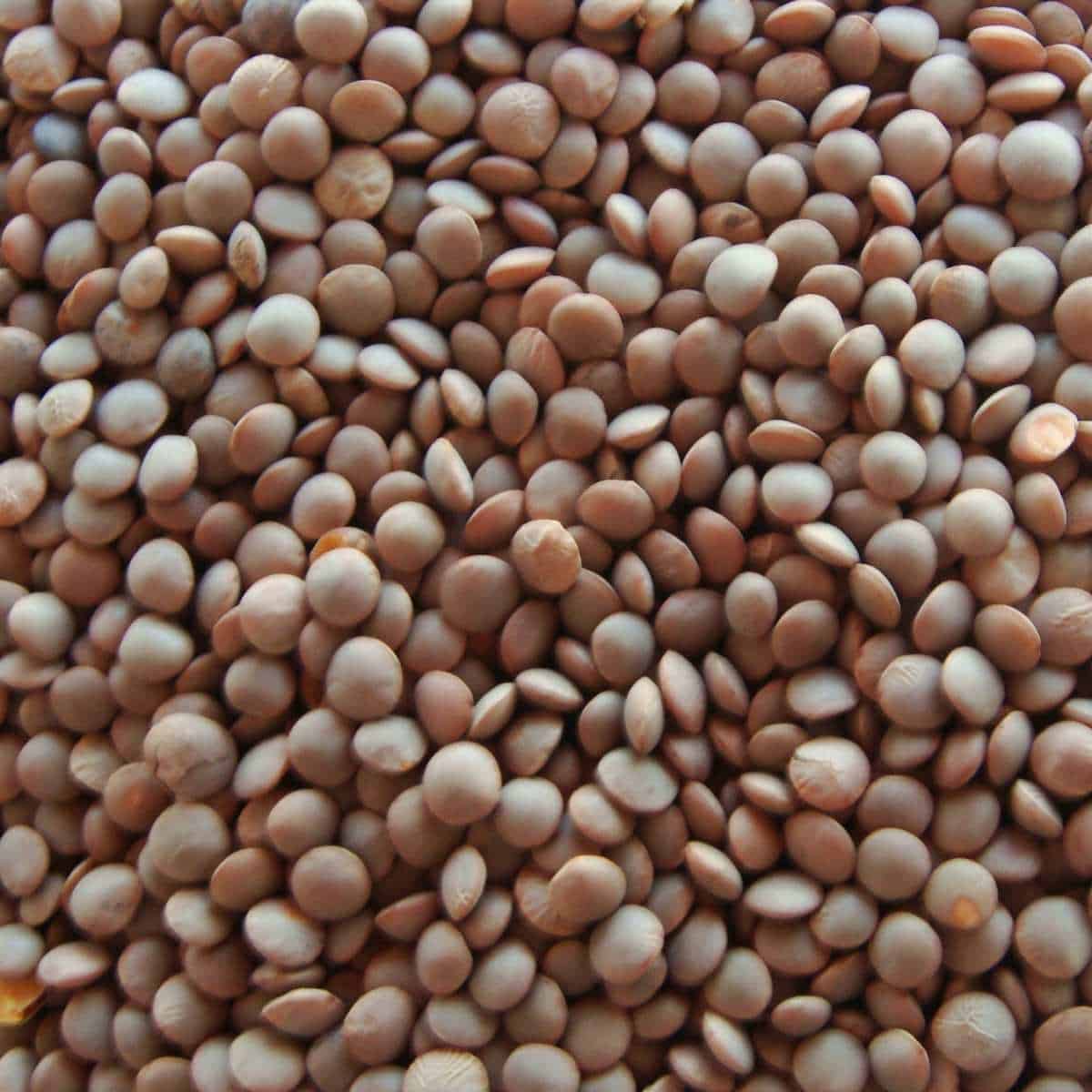
Brown lentils are the most common variety you can find at stores. This has a mild earthy flavor, and the color may also range from khaki brown to black.
2. Green Lentils
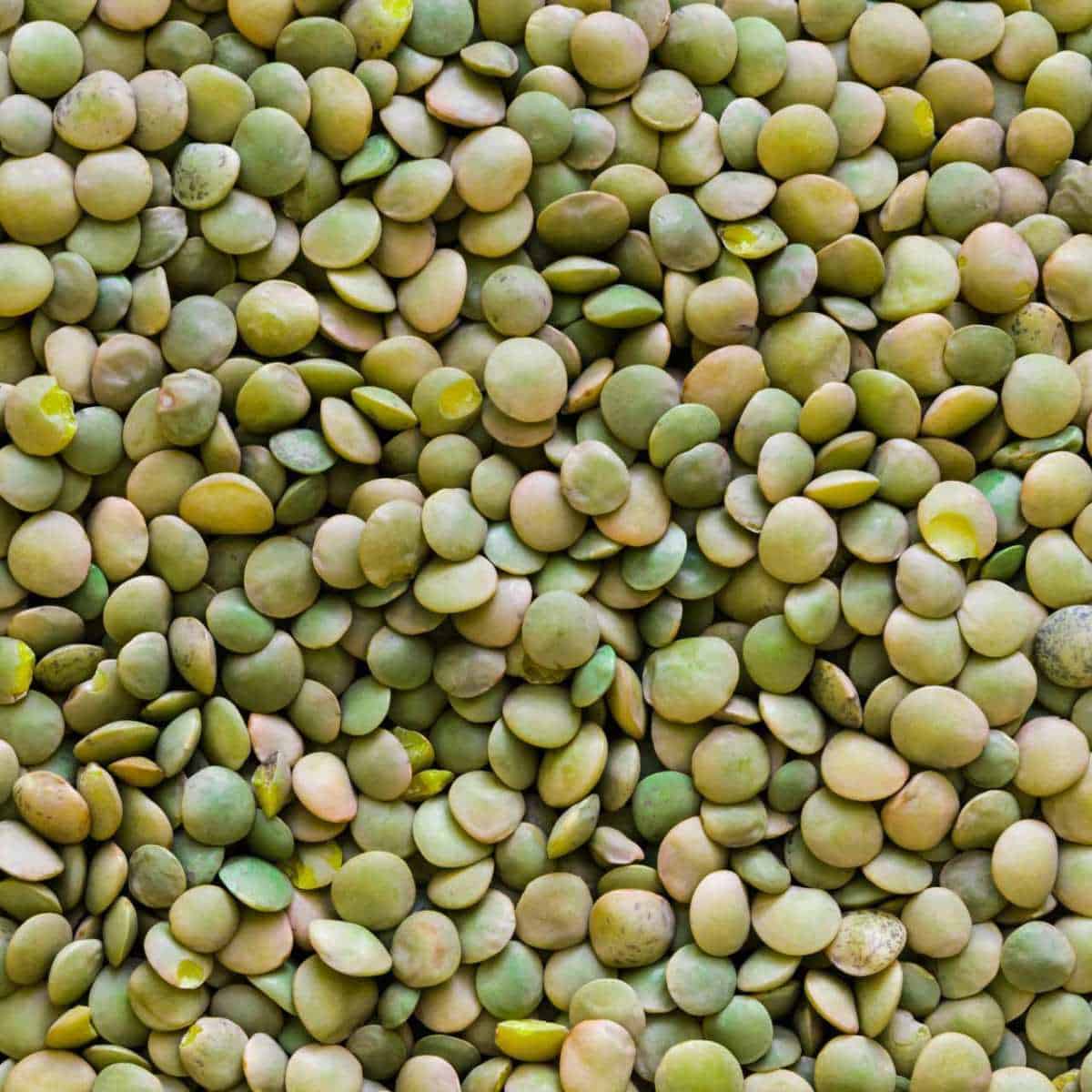
Green lentils are more similar to brown lentils. However, it has a more pungent peppery flavor which makes them a perfect ingredient for side dishes or salads.
3. Red Lentils
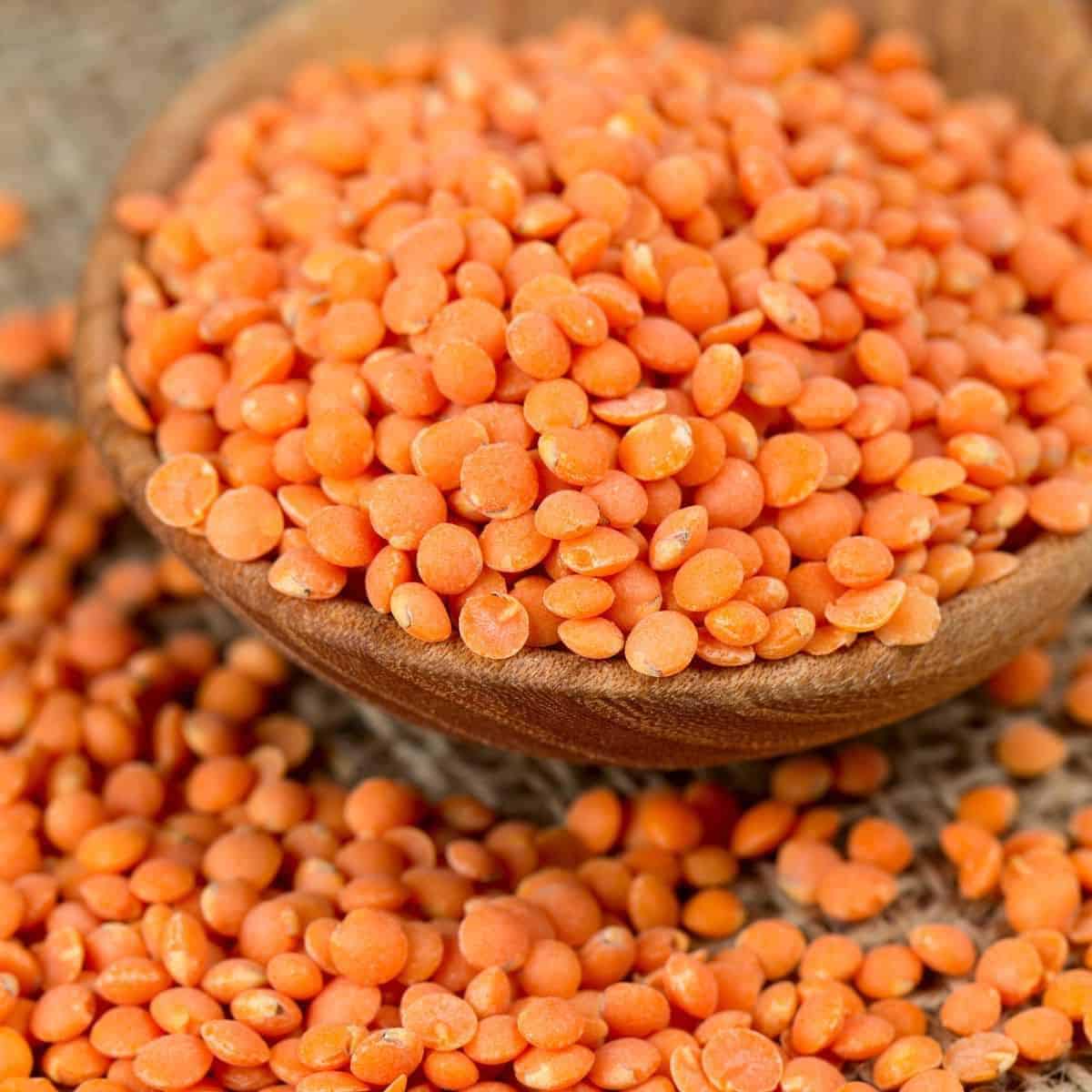
Red lentils are unique compared to other types since this has no skin and is cut in half. Using this with stews instead of salad is best because it cannot retain its shape.
4. Yellow Lentils
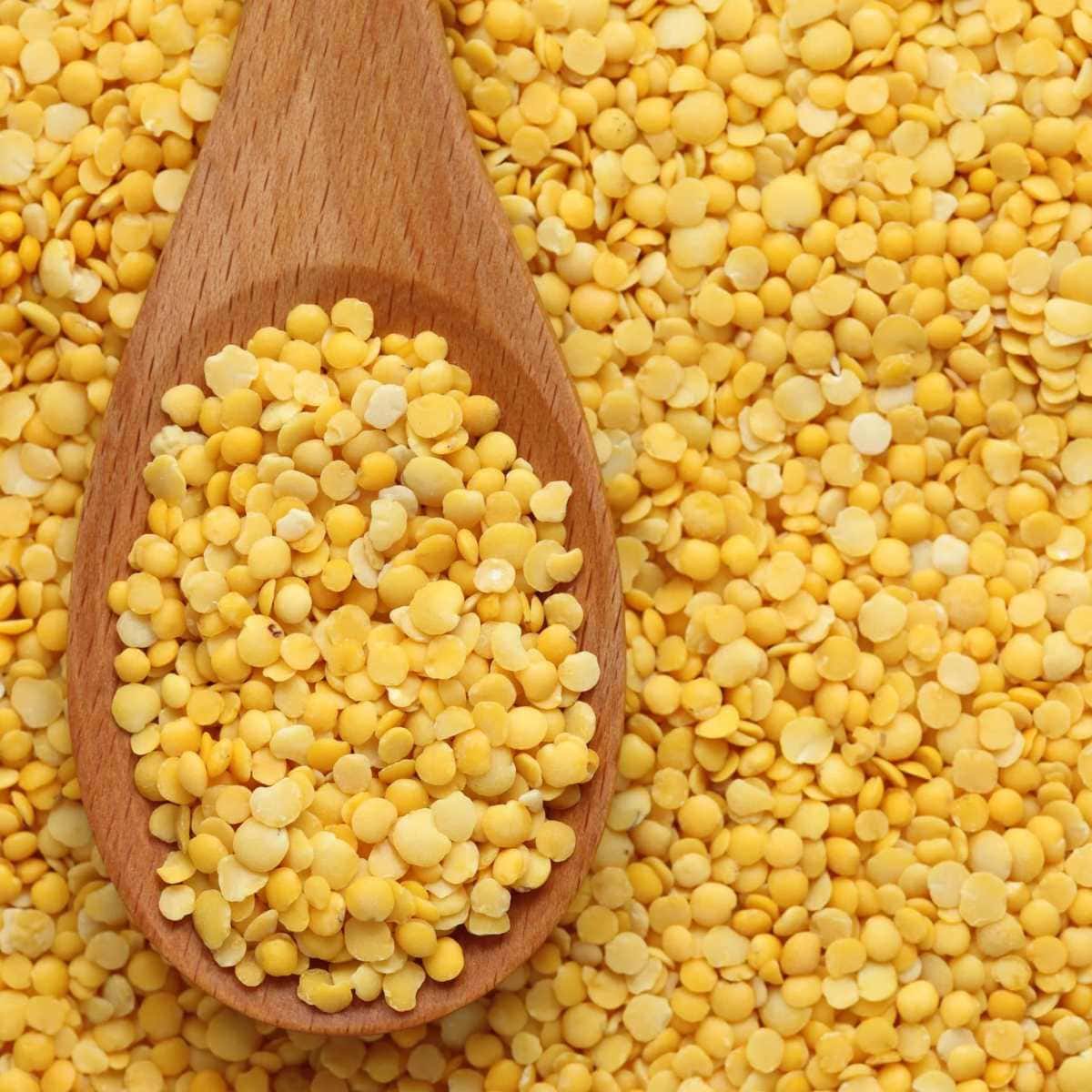
Yellow lentils are like the red ones in terms of shape and texture because they are also hulled. This has a lighter flavor which is perfect for first-time eaters of lentils.
5. Black Lentils (Beluga)
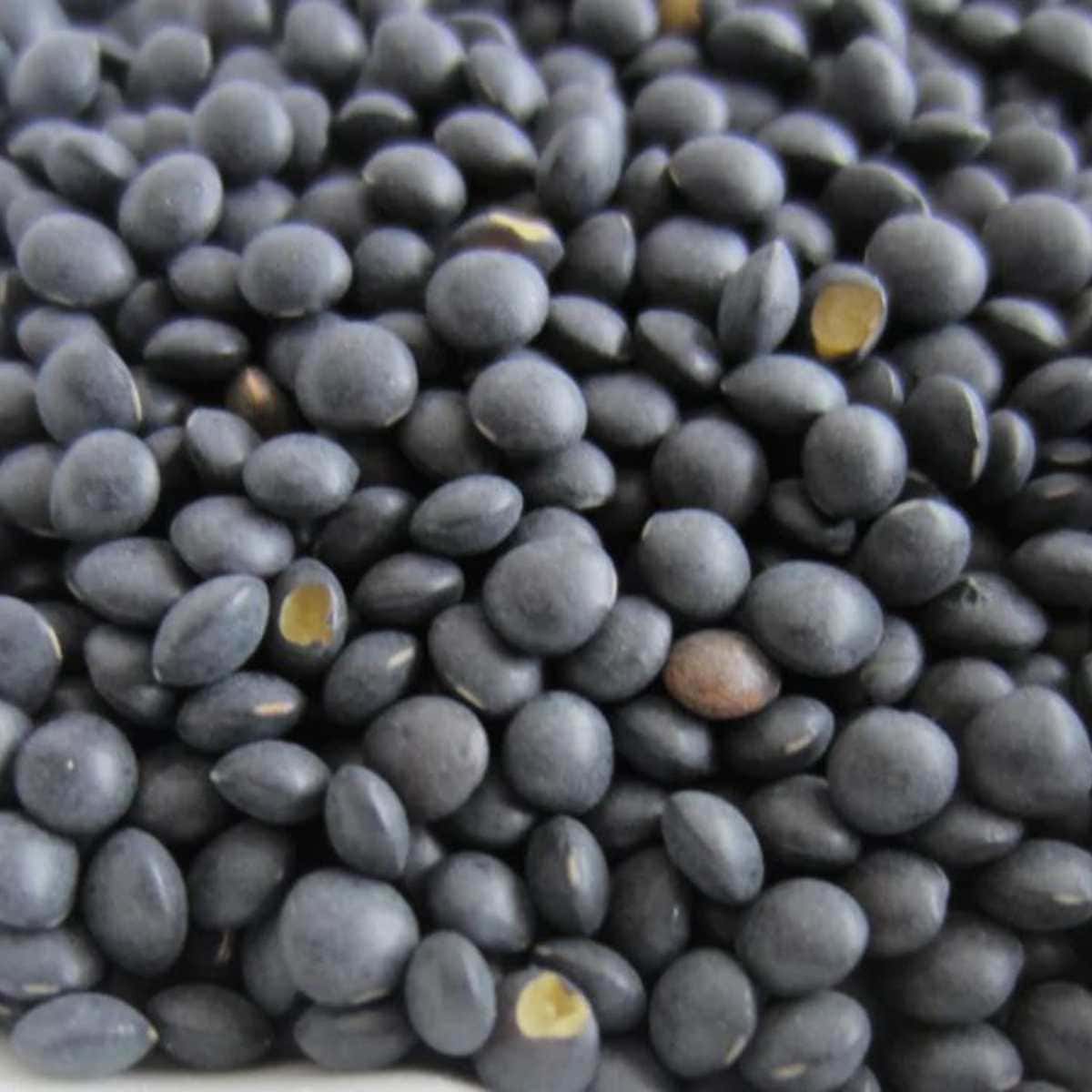
Black Beluga lentils resemble the appearance of the expensive Beluga Caviar. But this type is just a darker variation of brown lentils.
6. Puy Lentils
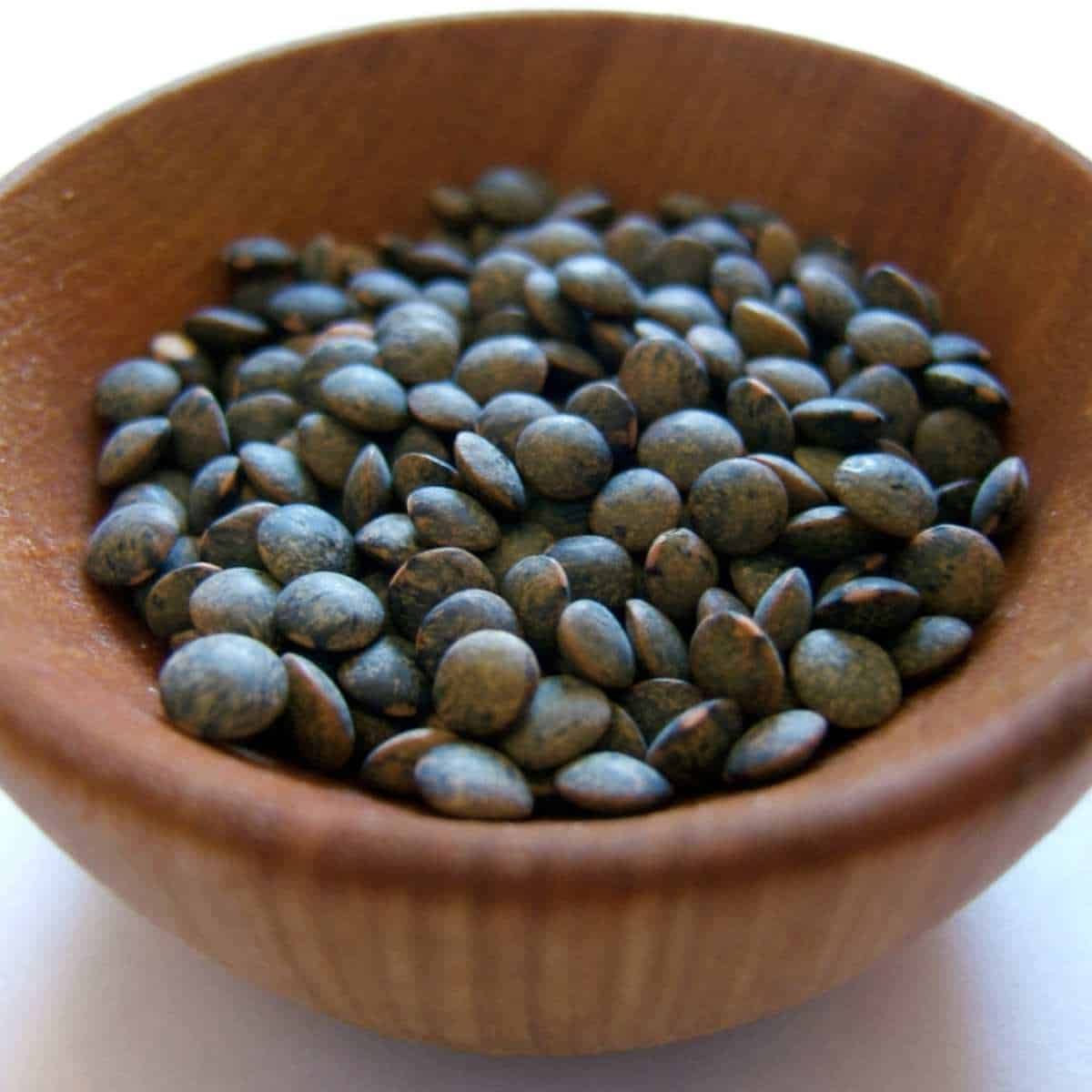
Puy lentils came from the Southern French region. It has a mineral-like and peppery flavor that is good for salads, fish, or a side dish.
Clearing Misconceptions About Lentils and Chickens
With all the available information on the internet, it is easy to be deceived by misconceptions. Some people believe that giving your chickens lentils is terrible for their health. This idea is partially true but not entirely true. Let us know why!
Raw or dried lentils contain poisonous compounds for chickens, often leading to fatality. A compound called Phytohaemagglutinin is a kind of lectin that causes digestive problems; unfortunately, plants like lentils have high levels of this. In just hours, chickens can die when they consume Phytohaemagglutinin.
Nevertheless, this is only a concern with uncooked lentils. As long as you properly prepare these seeds by either boiling or sprouting them, they are safe to supplement your flock’s food. Both boiled and sprouted lentils are safe for chickens.
The 3 Benefits of Lentils to Chickens
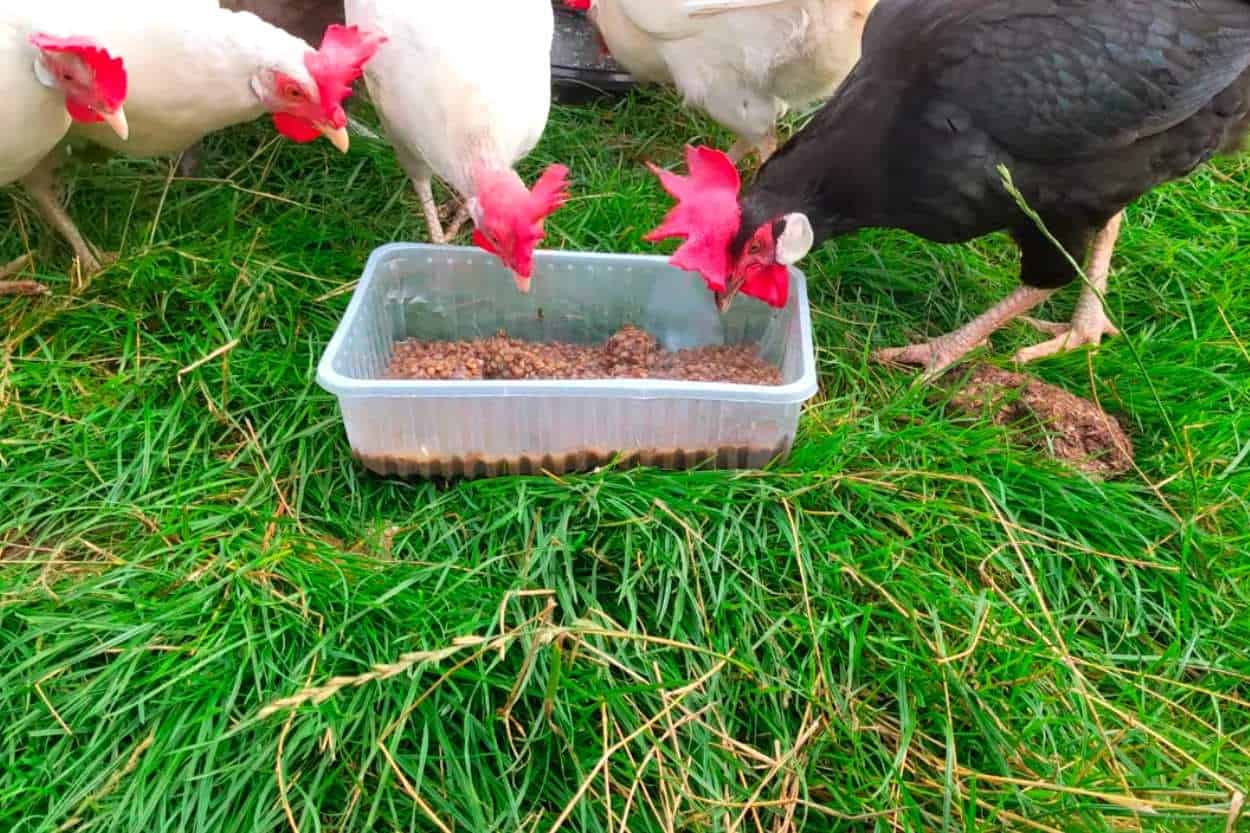
If prepared correctly, lentils can do more good than harm to your precious flock! Read below how lentils can benefit the health of your chickens.
Healthier Weight
One of the obvious benefits of adding lentils to your chicken feed is its ability to help maintain a healthy weight for your chicken. Due to the low-fat content of lentils, you can avoid obese chickens while still balancing their nutrients. Fatty livers and heat stroke are less likely to occur when feeding chickens with lentils.
Obesity in chickens is a silent killer; even the most expert in poultry farming may not notice it. Hence, feeding them with cooked lentils may lessen your worries a bit!
Healthier Reproduction
Do you need help with the chick development of your hens? Then, you can supplement their regular feeds with lentils and observe if they can make healthier eggs and chicks. Lentils are a great source of Potassium, so they will likely give a favorable result.
Overall Growth
Lentils have a higher protein content than other seeds you can add to chicken feeds. Hence, if you need to improve the overall growth of your flock, including their egg production and muscle growth, try adding lentils to their daily meal.
Aside from protein, lentils also have other nutrients like iron and fibre that may help your chickens’ bodies grow.
How to Prepare Lentils for Chickens?
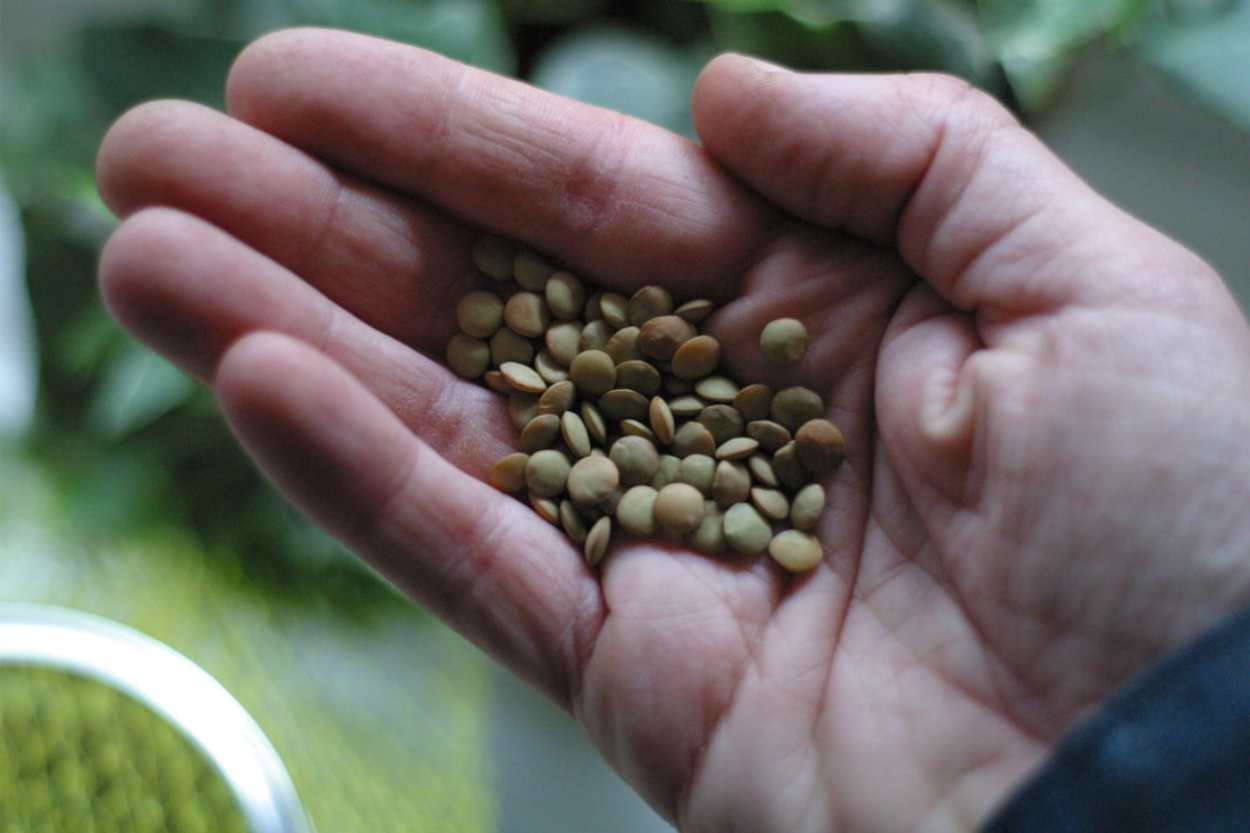
Now that we know the three significant advantages of feeding your chickens lentils let us learn how to prepare them! Well, lentils are harmful to chickens if they are uncooked, so the best way to prepare them is by boiling them and sprouting the seeds.
Sprouted Lentils
Sprouting lentil seeds before giving them to your flock might seem challenging because of the time and effort you will exert. However, the effort can’t compare to the benefits it can provide. Sprouted lentils are much safer for your chickens, and it is also more economical than buying seeds over and over again.
Here is a simple and quick guide on how to sprout your lentil seeds for chickens!
- Soak the lentil seeds in a bowl of water for 24 hours.
- After, strain the water and place the seeds in a colander.
- Cover the colander with a neat towel and put it in a sunny area.
- Soak the seeds with water for a couple of minutes twice a day, and cover it again after every rinse.
- Wait until 3 to 6 days before harvesting. Feed the lentil sprouts to your chickens.
This short clip can also help you navigate the sprouting process:
Cooked Lentils
The easiest way to take advantage of lentil nutrients is to boil them. Boiling lentil seeds will cancel out their poisonous components that can be fatal to your flock. Follow the three simple steps below.
- Soak and rinse the lentils in water beforehand. Remember that 1 cup of lentils may need 3 cups of water for boiling.
- Put the washed lentils in a large pot together with water. Then, cover the pot and wait for it to boil until soft. Do not over boil to avoid a mushy texture.
- After about 15 to 20 minutes of boiling, turn off the heat and strain the water. Let the lentils cool, then supplement them with your regular chicken feeds.
3 Tips for Feeding Lentils to Chickens
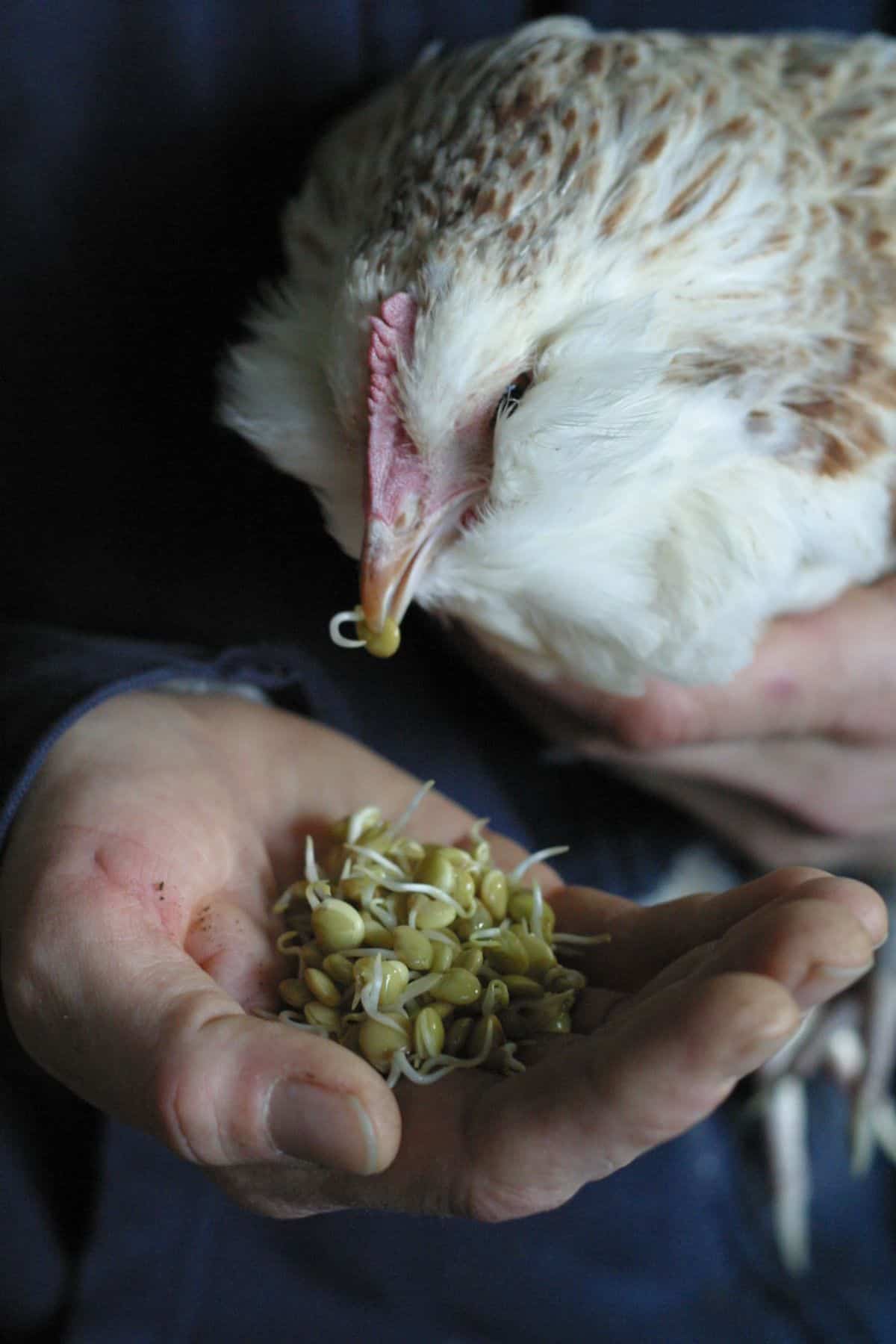
Soak and wash principle
Keep in mind that lentils contain toxins that are harmful to your chickens, so before giving them any, ensure to do the soak and wash principle. Before sprouting and boiling, soak the seeds in water for about 24 hours.
Lentils as supplementary feeds and treats
Chickens have their own nutritional requirements in order to grow and produce healthy eggs. Unfortunately, these needed nutrients can’t be provided by lentils alone. So, lentil seeds or sprouts are only considered as supplementary feeds and treats, not as substitutes for the primary meal of the flock.
Mix with other grains, veggies, and fruits
Mix lentils with vegetables, fruits, and other grains such as wheat and corn for better nutritional advantage. Cooked veggies like pumpkin, broccoli, carrots, and kale, and fruits like apples and bananas are fine too.
Frequently Asked Questions
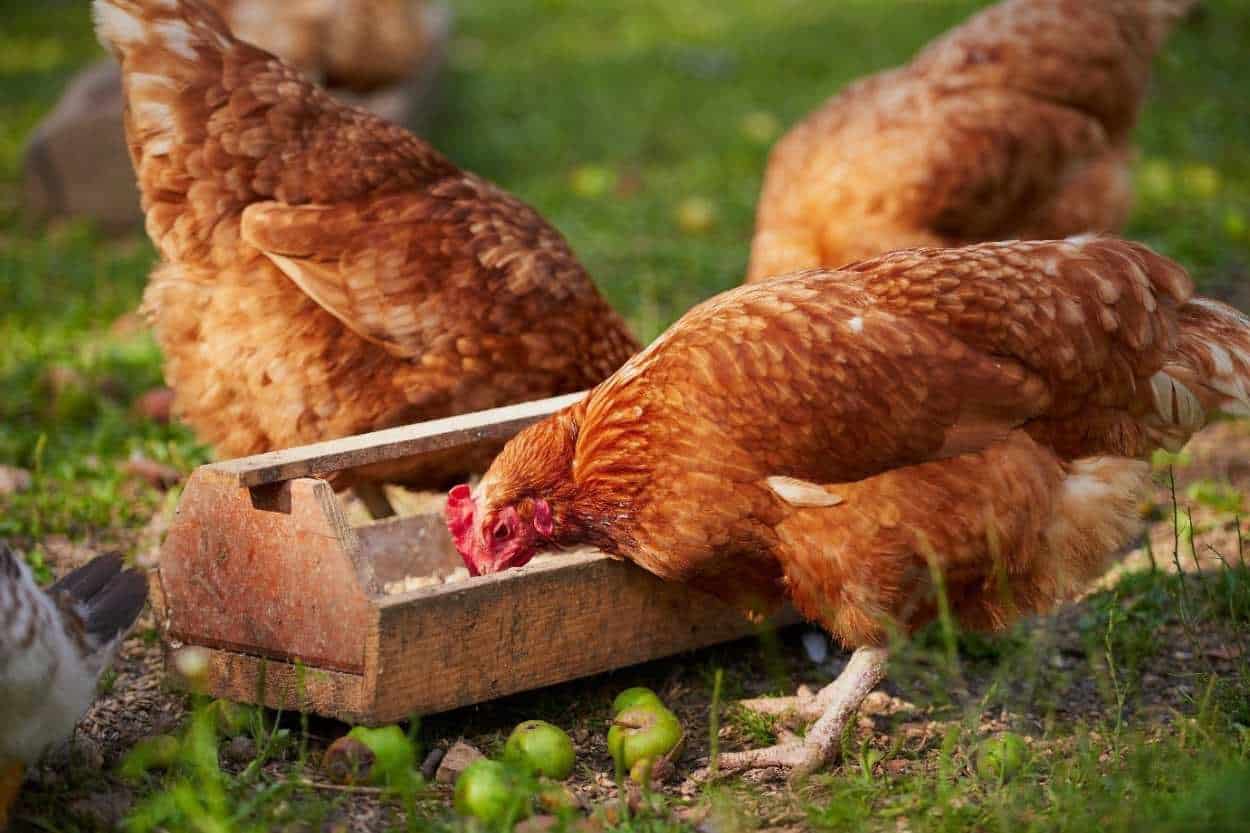
Why Can’t Chickens Eat Raw Lentils?
Chickens cannot eat raw lentils because they contain toxins, mainly Phytohaemagglutinin, that can be fatal when ingested. Your flock may experience trouble in digestion due to this compound.
What Type of Lentils is Best for Chickens?
Brown and green lentils are the ideal seeds for your flock since these can sprout well. Black lentils are the healthiest variety; however, it is best to avoid split lentil seeds because these will not sprout.
How Many Lentils Can Chickens Eat?
Despite being so beneficial to chickens, lentils should still be given in moderation. That said, only 10% of chickens’ diet can be allotted to lentils or other supplementary feed. The 90% must consist of the primary meal.
Can chickens eat lentil seeds?
Yes, chickens may eat lentil seeds as long as it is cooked well. Cooking or boiling the lentil seeds will eliminate the toxins they contain.
Can chickens eat canned lentils?
Do not feed your chickens canned lentils. According to Nutrition Value, a cup of canned lentils contains 601mg or 26% sodium. This sodium level is not advisable for chickens since the recommended amount of salt for chicken feeds is only 0.2%.
Conclusion
Can chickens eat lentils? Yes, they can! But ensure that the lentils are washed properly, cooked well, or, even better, sprouted. Please do not give them raw lentils or the ones packed in cans. If you are worried about your chickens not getting their required nutrients to grow, you can add lentils to their primary diet but give them in moderation.
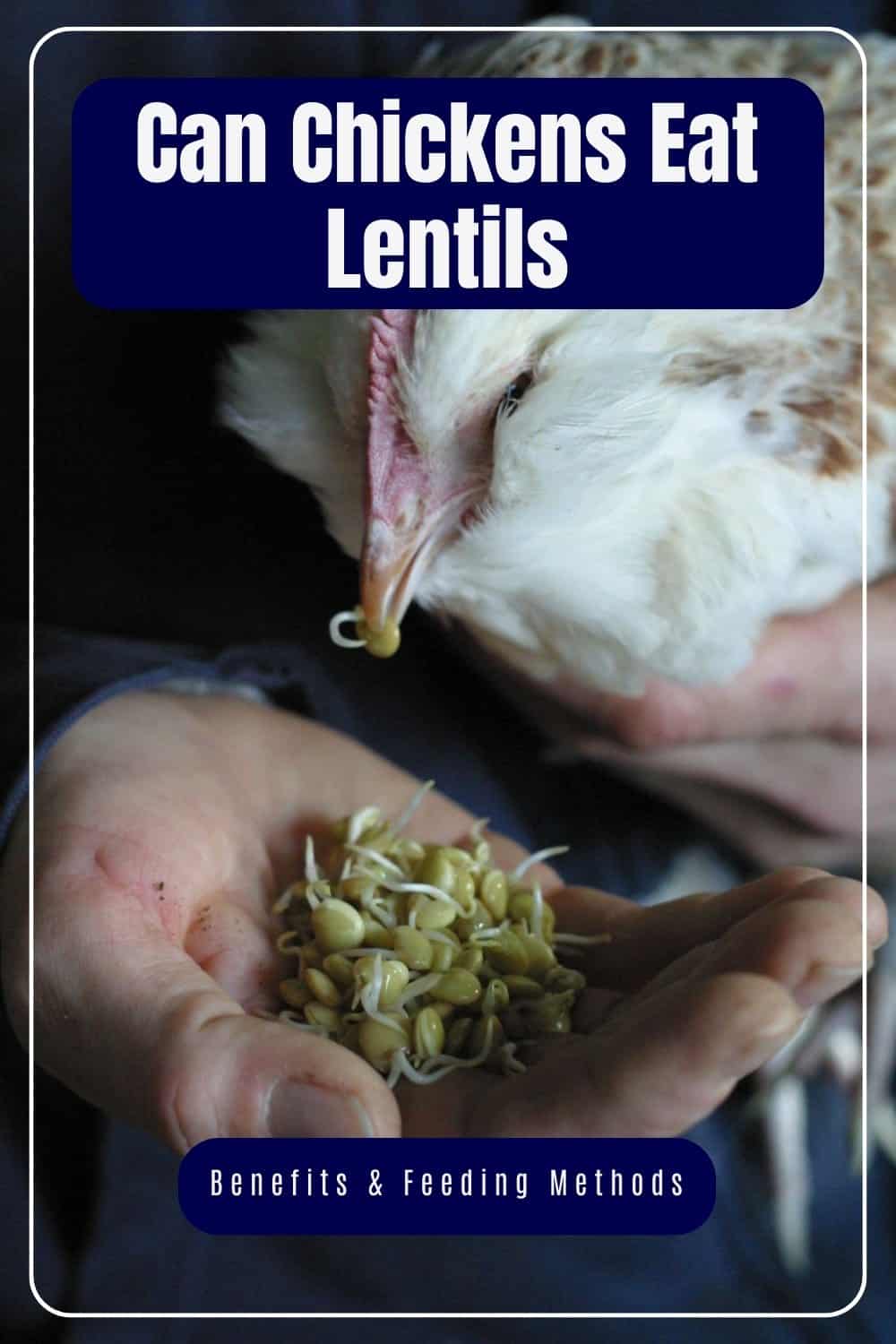

Joseph Hudson has been raising chickens for over 15 years. In 2018, he completed the Agriculture & Natural Resources program at Mt. San Antonio College. He currently raises over 1400 chickens on his 7.5-hectare farm. He keeps sharing his experience on raising healthy and happy chickens on Chicken Scratch The Foundry.
